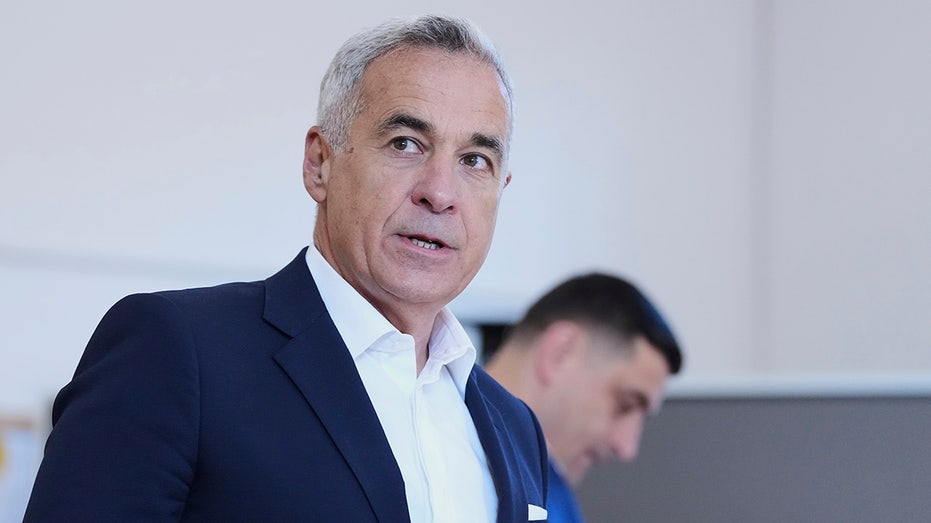Romanian Populist Presidential Candidate Celebrates Political Comeback After Election Cancellation
Calin Georgescu withdraws from politics after court annuls his presidential election victory amid electoral violations.

Romanian populist Calin Georgescu has announced his retirement from politics after being barred from participating in the country’s upcoming presidential election rerun. This development comes on the heels of a tumultuous electoral season that saw Georgescu initially emerge as the frontrunner before his candidacy was derailed by allegations of electoral misconduct and foreign interference.
Georgescu, who ran as an independent, won the first round of voting late last year. However, Romania’s top court ultimately annulled those results amid claims of irregularities and suspicions of Russian meddling in the process. Authorities later prohibited him from taking part in this month’s rescheduled contest, which ended with pro-European Union candidate Nicusor Dan securing the presidency.
In a video posted online, Georgescu, 63, announced his intention to withdraw from political life entirely. “I choose to be a passive observer of public and social life,” he declared, adding, “I choose to remain outside any political party structure … I am not affiliated with any political group in any way.” He described the conclusion of the race—and his forced exit—as signaling the end of Romania’s so-called “sovereignist movement.”
Despite stepping back, Georgescu expressed gratitude to his supporters. “Even though this political chapter has ended, I am convinced that the values and ideals we fought for together remain steadfast,” he said. “My dear ones, I have always said that we would make history, not politics.”
Georgescu’s political career has recently become entangled in legal controversy. Prosecutors in February initiated criminal proceedings against him, including accusations of incitement to undermine the constitutional order, misusing campaign funds, and supporting fascist or racist organizations. On Tuesday, he was scheduled to appear before the prosecutor’s office in Bucharest to answer some of these charges.
Notably, Georgescu’s campaign was marked by a robust social media presence, despite his official declarations of zero campaign spending. The events around the annulment of the election have sparked criticism from both within and outside the country. U.S. Vice President JD Vance, speaking at the Munich Security Conference in February, questioned the decision to cancel the vote based on what he described as “flimsy suspicions” and external pressure. “If your democracy can be destroyed with a few hundred thousand dollars of digital advertising from a foreign country, then it wasn’t very strong to begin with,” Vance said.
Georgescu has long been a polarizing figure in Romanian politics. He drew outrage for statements lauding controversial nationalist leaders from Romania’s past and has voiced praise for Russian President Vladimir Putin, while simultaneously questioning Ukraine’s legitimacy. Still, Georgescu insists he is not aligned with Moscow’s interests, arguing instead that he is being targeted unfairly.
“There was no justification for canceling the election. This was done illegally and unconstitutionally,” Georgescu maintained, accusing authorities of fabricating evidence to block his political ambitions.
Earlier this year, Georgescu’s supporters organized large demonstrations in Bucharest, protesting his exclusion from the race and calling for transparency in the electoral process.
The Associated Press contributed to this report.




